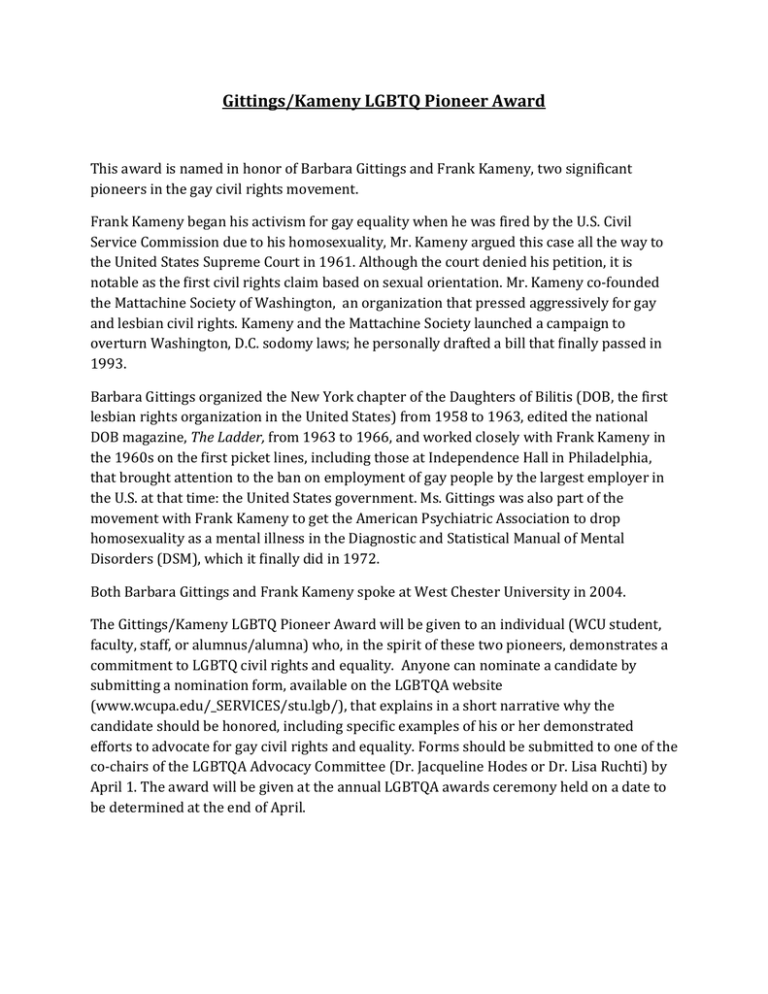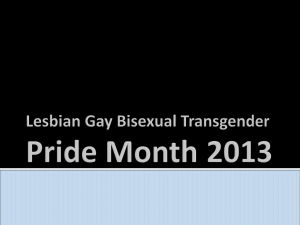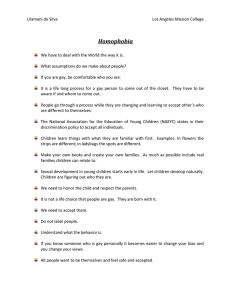Gittings/Kameny LGBTQ Pioneer Award
advertisement

Gittings/Kameny LGBTQ Pioneer Award This award is named in honor of Barbara Gittings and Frank Kameny, two significant pioneers in the gay civil rights movement. Frank Kameny began his activism for gay equality when he was fired by the U.S. Civil Service Commission due to his homosexuality, Mr. Kameny argued this case all the way to the United States Supreme Court in 1961. Although the court denied his petition, it is notable as the first civil rights claim based on sexual orientation. Mr. Kameny co-founded the Mattachine Society of Washington, an organization that pressed aggressively for gay and lesbian civil rights. Kameny and the Mattachine Society launched a campaign to overturn Washington, D.C. sodomy laws; he personally drafted a bill that finally passed in 1993. Barbara Gittings organized the New York chapter of the Daughters of Bilitis (DOB, the first lesbian rights organization in the United States) from 1958 to 1963, edited the national DOB magazine, The Ladder, from 1963 to 1966, and worked closely with Frank Kameny in the 1960s on the first picket lines, including those at Independence Hall in Philadelphia, that brought attention to the ban on employment of gay people by the largest employer in the U.S. at that time: the United States government. Ms. Gittings was also part of the movement with Frank Kameny to get the American Psychiatric Association to drop homosexuality as a mental illness in the Diagnostic and Statistical Manual of Mental Disorders (DSM), which it finally did in 1972. Both Barbara Gittings and Frank Kameny spoke at West Chester University in 2004. The Gittings/Kameny LGBTQ Pioneer Award will be given to an individual (WCU student, faculty, staff, or alumnus/alumna) who, in the spirit of these two pioneers, demonstrates a commitment to LGBTQ civil rights and equality. Anyone can nominate a candidate by submitting a nomination form, available on the LGBTQA website (www.wcupa.edu/_SERVICES/stu.lgb/), that explains in a short narrative why the candidate should be honored, including specific examples of his or her demonstrated efforts to advocate for gay civil rights and equality. Forms should be submitted to one of the co-chairs of the LGBTQA Advocacy Committee (Dr. Jacqueline Hodes or Dr. Lisa Ruchti) by April 1. The award will be given at the annual LGBTQA awards ceremony held on a date to be determined at the end of April.



![-----Original Message----- [mailto:] Sent: Tuesday, March 15, 2005 4:00 PM](http://s2.studylib.net/store/data/015587023_1-54e94fc602323868fe7d0334a40d4ded-300x300.png)